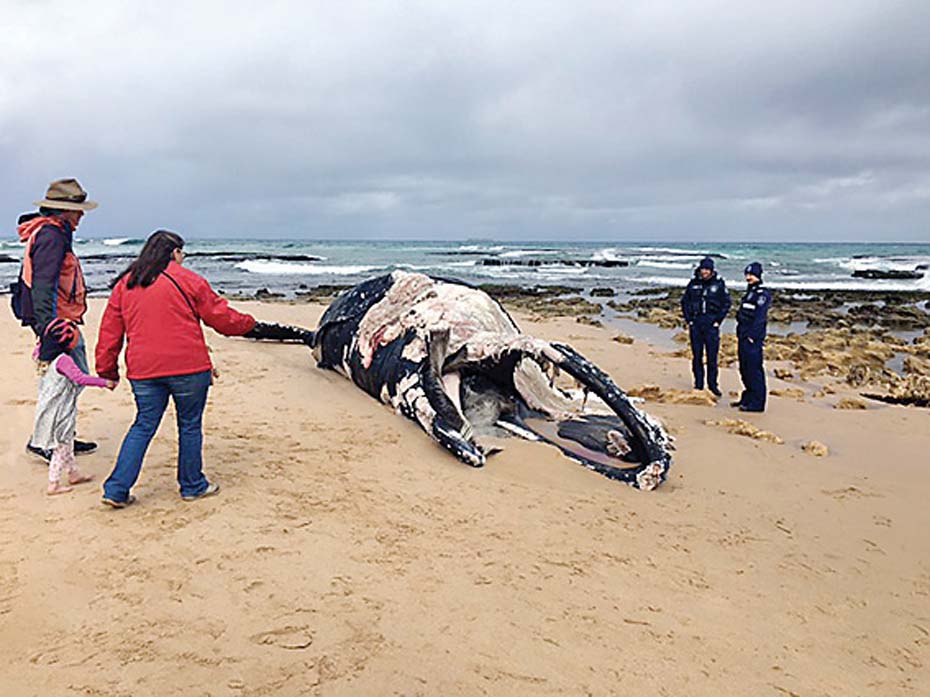SHARKS were seen eating a dead whale before it was washed ashore at Boags Rocks, between Gunnamatta and St Andrews beaches.
The 11-metre humpback carcass bore the marks of bites from large sharks and was covered in crustaceans as it lay high and dry on rocks, Monday 23 September.
“We could see the sharks lunging and spray coming off them, their fins rising up out of the water – it was pretty full on to watch,” said environmental advocate Josie Jones who first saw the whale drifting in on the Sunday night.
DELWP incident spokesperson Kylie Hyland said: “The beach is still open, and people are advised to keep their distance.
“The whale will remain on the beach while DELWP, with Parks Victoria, manage the situation.
“Moving a whale is a complex task and many options are being discussed. The whale could weigh up to 20 tonnes.”
Ms Hyland said whale remains were protected by law and must not be interfered with.
“There is also a possibility of pathogens from the whale carcass that could be harmful to humans,” she said.
Emergency Management Victoria has put out a warning about sharks in the area. For up to date warnings check emv.vic.gov.au
Cetacean scientist Sue Mason said the whale must have died shortly before it beached as the carcass had not begun to decompose.
Scientists estimate that about 33,000 humpbacks migrate along the east coast to and from their feeding grounds in the Antarctic to the warmer waters of the Great Barrier Reef, where they breed. This population increases by about 10 per cent each year. A separate population migrates along the West Australian coast.
This humpback may have been on its way south to the Antarctic to feed over the summer.
Humpbacks can grow to 16 metres, with their pectoral fins being roughly one third the length of their body.
The best places to see humpbacks along the Victorian coast are Wilsons Promontory and from high vantage points along the coast. Sightings by citizen scientists are regularly posted on the Two Bays Whale Project Facebook page.
“As we know, it is important to keep our ocean clean to reduce our impact on these beautiful creatures,” Dr Mason said.
Any sightings of entangled whales should be reported to the whale and dolphin emergency hotline on 1300 136 017.
First published in the Southern Peninsula News – 1 October 2019




